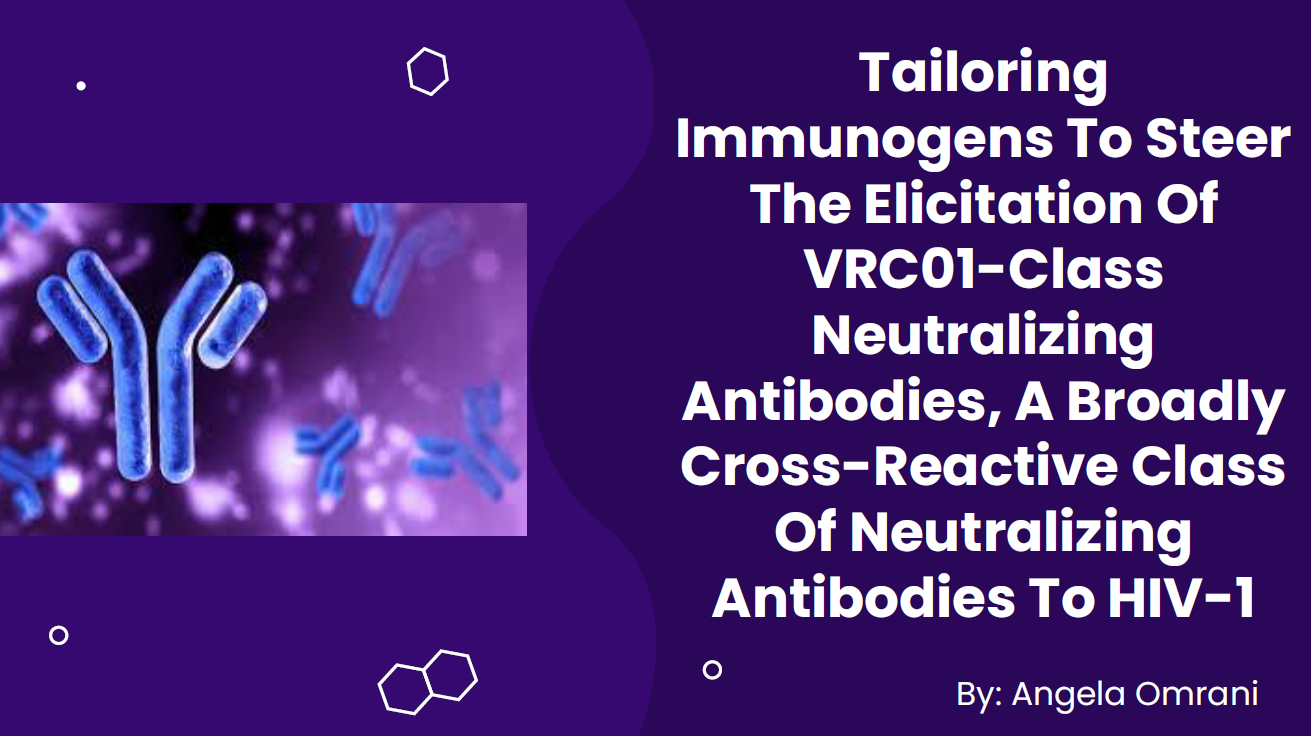Tailoring Immunogens To Steer The Elicitation Of VRC01-Class Neutralizing Antibodies, A Broadly Cross-Reactive Class Of Neutralizing Antibodies To Human Immunodeficiency Virus Type 1 (HIV-1)
Main Article Content
Abstract
HIV-1 remains a major global health issue, making the development of an effective vaccine pivotal. Our research focuses on VRC01-class broadly neutralizing antibodies (bnAbs) to the conserved CD4-binding site on gp120, a subunit of the HIV-1 spike protein. A promising strategy for eliciting VRC01-class bnAbs involves germline-targeting immunogens designed to activate naïve B cells capable of evolving into VRC01-class-producing cells. A promising germline-targeting immunogen, eOD-GT8, triggers VRC01-class naïve B cells in experimental animals and a phase I clinical trial. However, the antibodies elicited do not neutralize HIV. Efforts are underway to design booster immunogens that help mature the triggered B cells toward producing VRC01-class antibodies. A challenge in this strategy is overcoming a common glycan at position 276 on the periphery of the CD4bs that hinders the binding of early VRC01-class antibodies produced by naïve B cells. eOD-GT8 is, therefore, designed without this glycan. Booster immunogens with the glycan incorporated have not readily yielded affinity-matured antibodies with the capacity to neutralize authentic HIV strains. The Pantophlet Lab is probing whether modifications to eOD-GT8 yield antibodies better poised to evolve into the desired VRC01-class bnAbs. Using human-antibody transgenic mice, we found that animals primed and boosted with two modified immunogens generate antibodies modestly neutralizing HIV-1 strains with the 276-glycan. My research is focused on an in-depth analysis of the antibodies elicited and their sequences to understand these findings and inform further immunization strategies.
Article Details

This work is licensed under a Creative Commons Attribution-NonCommercial-NoDerivatives 4.0 International License.

